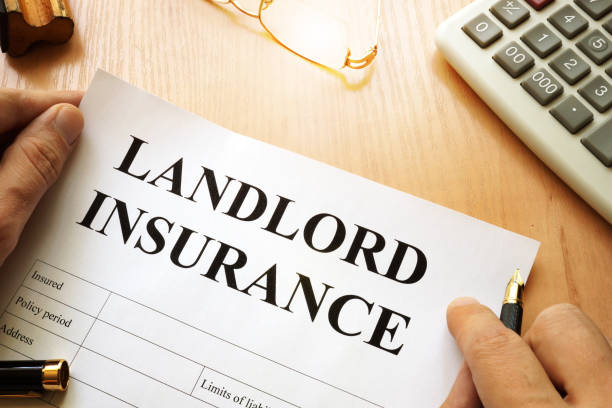The Vital Importance of Landlord Insurance for Property Investors
As a landlord or rental property owner, your investment represents a significant amount of capital and years of hard work. However, all that time, money, and effort face countless risks that traditional homeowners insurance simply doesn’t cover. From destructive tenants and lengthy vacancies to costly liability claims, the potential financial pitfalls of being an unprepared landlord are massive.

That’s where landlord insurance comes in. This specialized type of property coverage is designed to protect your rental investments, assets, and income against the unique exposures faced by those participating in the rental housing market. While landlord policies come with their own costs, they provide an essential shield against devastating losses that could undermine your real estate business.
In this comprehensive guide, we’ll explore everything you need to know about landlord insurance – what it covers, policy options, costs, ways to save, and tips for getting the right coverage. Don’t let your rental investments go unprotected – read on to discover how a landlord insurance policy can safeguard your properties and finances.
What is Landlord Insurance?
At its core, landlord insurance is a customized form of property insurance crafted specifically for rental properties. It goes well beyond the coverages of a standard homeowners policy by protecting you from liability risks and certain tenant-related damages that aren’t included in regular insurance plans.
When structured properly, a landlord insurance policy acts as a comprehensive solution that can cover:
- The physical rental property itself, whether a single-family home, condo, or apartment building
- Lost rental income if the property becomes uninhabitable
- Your liability as the property owner or landlord
- Possessions used in property maintenance and upkeep
Unlike homeowners insurance aimed at owner-occupied properties, landlord policies account for the distinct risks of having tenants and operating rental properties as a business. The right policy ensures you have sufficient protection from common landlord exposures like property damage, lost income streams, liability lawsuits, and more.
What Landlord Insurance Covers
While coverage specifics can vary between insurers and policies, most landlord insurance plans consist of these core components:
- Property/Dwelling Coverage
This is essentially the landlord equivalent of homeowners insurance, covering the physical rental property and any detached structures like garages, sheds, or fences against named perils like:
- Fire, smoke, or lightning damage
- Wind, hail, or tornado damage
- Weight of snow, ice, or sleet damage
- Vandalism and malicious mischief
- Explosions
- Plumbing and pipe leaks
- Damage from vehicles or aircraft
- Falling objects
If the covered rental home or building is damaged or destroyed by a named peril, landlord property insurance helps fund the repair or complete rebuilding costs.
Other Structures
Aside from the primary dwelling itself, most landlord policies provide coverage for additional structures like detached garages, storage sheds, fences, in-ground pools, etc. This portion helps pay to repair or rebuild those structures in the event of a covered loss.
Loss of Rental Income
Landlord insurance reimburses you for rental income you’d normally receive if the property becomes uninhabitable after a covered loss like fire or storm damage and current tenants have to temporarily vacate the premises during repairs. Loss of rent coverage eases the financial strain of that disruption.
Fair Rental Value
In the opposite scenario where you have vacancies at the time of a covered loss, fair rental value coverage helps recoup the rental income you could reasonably expect to earn from prospective new tenants during the time the property is being restored and relisted for rent.
Personal Liability
This coverage protects you from liability claims alleging things like property damage, injury, or negligent upkeep on the rental premesis that you’d be legally obligated to pay.
Medical Payments
If someone is injured on your rental property grounds like a tenant, contractor, or visitor, medical payments coverage helps cover their initial medical bills regardless of liability.
Optional coverages like sewer backup, landlord contents for items like appliances or furniture, and fair rental income can often be added as endorsements as well. For maximum protection, speak to your agent about any supplemental coverage needs for your rental properties.
What’s NOT Covered by Landlord Insurance
While landlord insurance provides vital coverages not included in a homeowners insurance policy, there are still some key exclusions and limitations you need to be aware of:
- Tenant belongings or possessions are not insured
- Damage intentionally caused by tenants is usually excluded
- Pest infestations are generally not covered (such as bedbugs)
- Lack of maintenance or normal wear-and-tear damage
- Lost income due to economic circumstances
- Injuries to you as the landlord or your family
- Environmental issues like lead, mold, asbestos
- Vehicles or aircraft on the property
Essentially, landlord insurance is intended to cover sudden and accidental losses – not damages or losses resulting from neglect or improper maintenance, illegal activities, or expected repairs/upkeep on aging rental properties.
Some exclusions can be amended through endorsements, especially around protecting against tenant-caused damages or unlivable conditions due to maintenance failures. The level of supplemental coverage depends on the specific landlord policy and insurer.
Overall Cost of Landlord Insurance
Compared to regular homeowners insurance policies, landlord insurance does carry higher premiums because of the increased risks and broader coverages involved. However, the costs are generally quite manageable when considering the massive financial protection landlord policies provide.
On average, most standard landlord insurance policies nationwide cost between $1,000 to $3,000 per year or more for covering a single-family rental property. For a multi-family or apartment building consisting of 5 to 15 units, average landlord insurance premiums can range from $3,500 up to $10,000+ annually.
Much like a homeowners policy, location plays a big role in determining landlord insurance costs. Prices are highest in areas prone to natural disasters, dense urban centers with higher crime, and locations considered “riskier” for renters. Deductibles selected, property age, and optional coverage amounts factor into costs as well.
Costs can also vary significantly depending on whether your rental home or building is for low-income, student, or affordable housing versus upper-end luxury rentals. The higher the risks and value of the property being insured, the higher the landlord insurance premiums will be.
Ways to Save on Landlord Insurance
While you should never jeopardize proper coverage just to save a few bucks, there are absolutely strategies landlords can utilize to lower their insurance bills each year:
- Bundle property & liability policies for discounts
- Install security systems & smart home technology
- Maintain & update older rental properties
- Require higher security deposits
- Improve residential screening for tenants
- Increase deductibles
- Shop around annually for better rates from new insurers
- Consider joining a landlord/rental housing association
- Allow your insurer to conduct inspections/consultations
The key is being proactive in all aspects of landlord risk management from properly vetting tenants, taking safety precautions, and keeping up on maintenance issues before they escalate into larger claims. Insurers reward landlords with lower premiums when efforts are made to minimize potential losses and liabilities.
Tips for Getting the Right Landlord Coverage
With so many permutations of landlord insurance offerings available, how can you ensure you’re selecting the ideal coverage for your rental properties? Here are some tips:
Assess Your Risks
Consider factors like your location, tenant profile, age of properties, vacancy rates, and any past claims to determine your personal risk exposures as a landlord. This helps identify coverage priorities.
Hire A Knowledgeable Agent
An experienced landlord insurance agent will analyze your specific rental situation and business needs to build a tailored policy with the appropriate coverages, limits, and endorsements you require.
Consider Packaged Policies
Rather than purchasing individual coverage components piecemeal, many insurers offer comprehensive landlord protection packages with numerous bundled coverages already included at packaged rates.
Purchase Enough Liability Coverage
Liability risks represent one of the biggest hazards landlords face. Make sure you have sufficient personal liability coverage of at least $1 million and potentially an umbrella policy for extra protection.
Insure To Accurate Replacement Values
When insuring the rental properties themselves, use an accurate replacement cost valuation that accounts for labor and material costs for fully rebuilding the structure from the ground up if destroyed.
Don’t Overlook Special Provisions
Certain types of rental properties like vacant homes, short-term rentals, student housing, or multi-family buildings may require special provisions or policy endorsements for full coverage.

Review Policies Annually
Both your rental properties and insurance needs continually evolve each year. Conduct an annual coverage review with your agent to ensure your landlord insurance stays aligned with your real estate business.
Protecting Your Investments and Income
As rewarding as owning rental properties can be, the harsh reality is that being a landlord opens you up to tremendous financial risks that simply can’t be ignored. From destructive tenants and potential liability lawsuits to prolonged vacancies and property damage incidents, the potential monetary losses are staggering if you aren’t properly insured.
That’s why landlord insurance needs to be viewed as an indispensable safeguard for your investments, assets, and income as a rental property owner. While premiums can run higher than a standard homeowners policy, the coverage a specialized landlord insurance plan provides is invaluable in shielding you from devastating out-of-pocket costs.
Whether you own a single-family rental home or an entire apartment complex, don’t let years of hard work and equity get wiped out from an uninsured incident. Take the time to consult an experienced landlord insurance agent to assess your unique set of exposures. With the proper tailored policy in place, you can finally have peace of mind knowing your rental business and future earnings are fully protected from whatever challenges come your way.
The costs of landlord insurance are relatively small compared to the potential for rental property losses without coverage. Make landlord insurance an obligatory expense that allows you to keep profiting from your investments for years to come.